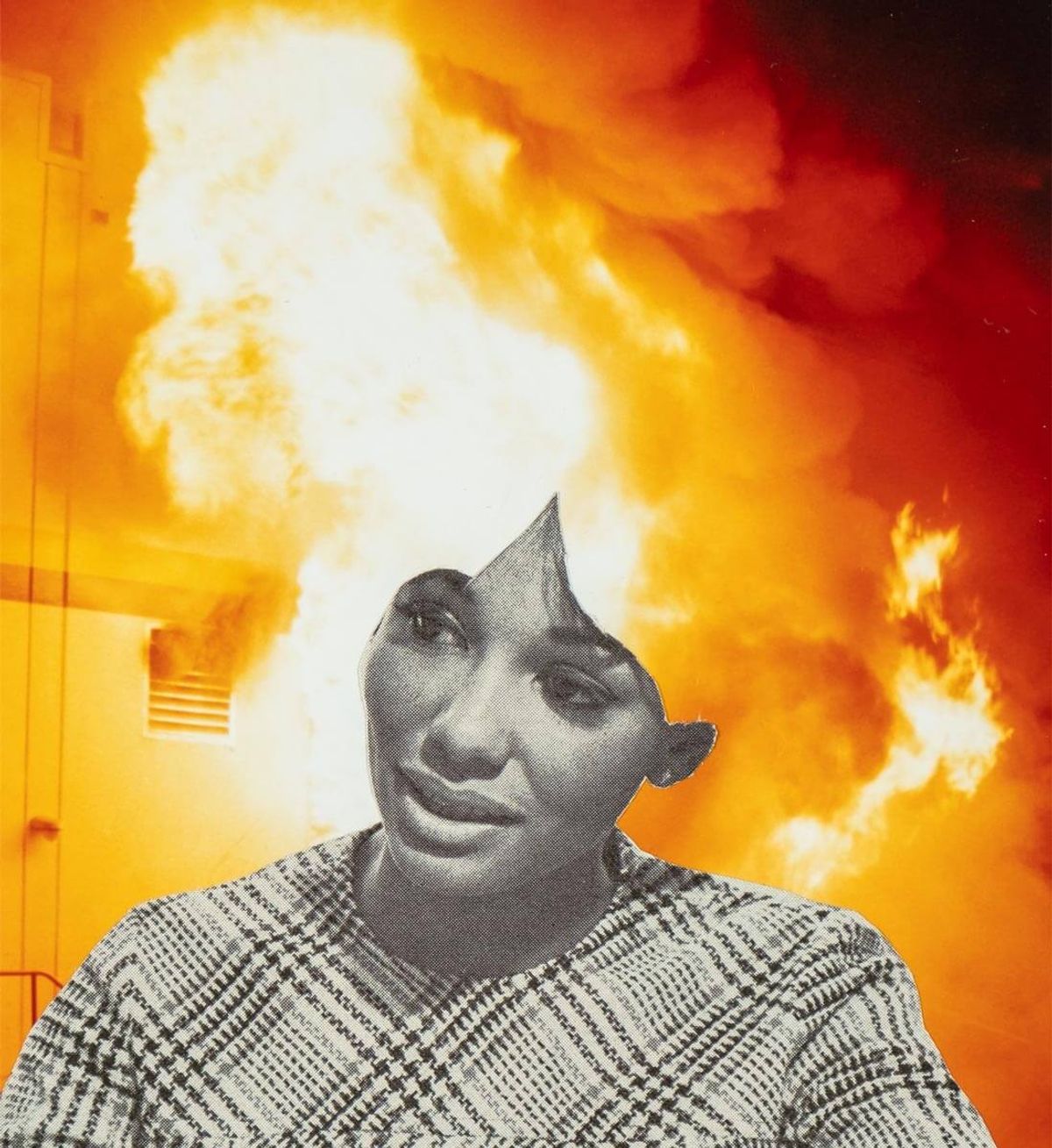Lorna Simpson, the 59-year-old African American photographer renowned for her collaged depictions of the black female experience, is attempting to create a new body of work while under lockdown at home in Los Angeles, but admits she is finding herself deeply impacted by the unfolding coronavirus (Covid-19) crisis in the US. The virus, studies have shown, is around four times more likely to impact on black Americas than fellow white citizens, and it has laid bare the stark inequalities of US society, the artist suggests.
“I’m finding myself watching news reports and thinking about all the death,” Simpson says. “Thinking of people that are food insecure. Thinking of people that don’t have homes, that are having to live on the streets during a pandemic. People who have no choice but to go work, which, in New York and most other major cities, means taking the subway or taking buses.”
America’s health services, Simpson says, “are privileged by class”, whilst pre-existing conditions like hypertension and diabetes, she points out, are more prevalent among the black community, leaving them significantly more vulnerable to the invisible illness.
“A lot of people in America’s workforce do not have the luxury of being able to be at home to work,” she says. “They do not have the luxury of a computer at home, or to be able for each child to be able to sit on a computer and home school. They cannot access childcare. When you put all of that together, there isn’t any space to retreat against this virus.”
But while she has created new collages for an online exhibition with her gallery Hauser & Wirth, which is due to be exhibited physically once the gallery re-opens after the Covid-19 crisis, hopefully in June 2020, Simpson is “too tender” to reflect on the pandemic through her work right now. “I’m making what I make and not trying to control it or fit it into a form that is intelligible. I’m spending every day trying to make something, or at least touching base with my work. It will be interesting to see what comes out of it.”
The exhibition also acts as a showcase for Simpson’s career since the mid-1980s, and her ability to fuse into one body of work a mixture of found photography, graphic collage, installation, video and, latterly, her turbulent, ink-dark paintings, the latest of which are shown for the first time. Simpson was born in 1960, and some of her earliest childhood memories are of significant moments in the broad sweep of America’s Civil Rights Movement. She recalls visiting family in Chicago soon after the death of Martin Luther King, Jr. “My mother had very long hair and she went out to get it cut and came home with it in an Afro,” Simpson says, and everyone questioned her about the choice in hairstyle. “I was thrilled. It seemed to have such a ripple effect. I remember her reaction: ‘What’s the big deal? I can choose to do what I want with my hair.’”
• Give Me Some Moments is online now. The exhibition Lorna Simpson: Special Characters opens 16 June at Hauser & Wirth Hong Kong


